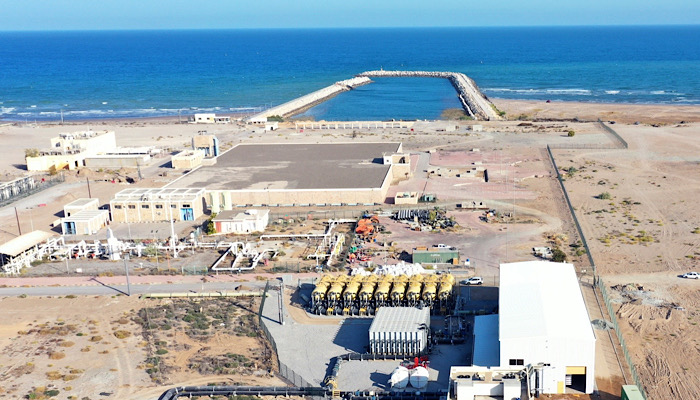TUNISIA – Tunisia's Zarat desalination plant in Gabes governorate is set to be operational by the end of January 2024, according to Minister of Agriculture, Water Resources, and Fisheries Abdelmonem Belati. Desalination plants are planned for Sfax, Sousse, and Djerba to manage water consumption and ensure drinking water rights, especially for future generations. The minister emphasized the importance of optimizing treated wastewater as an additional resource for irrigation. A floating station in the Sidi Saad dam basin, part of the irrigated areas development project, will exploit untapped resources and contribute to the irrigation of the Sidi Saad perimeter, benefitting around 1,000 farmers. (ZAWYA)
SOUTH KOREA – The startup Capture6 plans to build a carbon capture facility in South Korea that will store carbon dioxide in desalination brine. The company claims it can extract additional fresh water from this brine, offering sustainability benefits. The project, named Project Octopus, will be located at the Daesan Industrial Complex, working alongside a seawater desalination plant and providing a triple benefit by reducing greenhouse gases, generating freshwater, and minimizing desalination pollution. (Grist)
PORTUGAL – In response to the severe drought situation in the Algarve region, Portugal's Minister of Agriculture, Maria do Céu Antunes, suggests potential measures such as deploying "small mobile desalination plants" and rehabilitating boreholes to address water scarcity in agriculture. The Drought Commission is scheduled to meet next week to discuss strategies, and the minister mentions the need for adjusting contingency plans for agricultural uses in the region based on the new reality. Specific plans will be determined after the Interministerial Drought Commission meeting. The Portuguese Environment Agency aims to present a contingency plan with new water consumption rules for the Algarve, currently facing its worst recorded drought. (The Portugal News)

The Al Ghubra temporary station in Oman has officially launched commercial operation. Credit: Times of Oman
OMAN – Nama Water Services has officially launched the commercial operation of the Al Ghubra temporary station, designed to process up to 20,000 m3/d. The temporary station aims to support the existing facility, addressing the growing water needs in Muscat Governorate during peak demand and accommodating urban expansion. The Al Ghubra temporary station will operate for five years until the completion of Al Ghubra Station 3. (Times of Oman)
OMAN – Sharqiyah Desalination Company SAOG has reported its full-year results ending on December 31, 2023. The company's revenue for the entire year was $33.3 million, compared to $35.1 million the previous year. The net profit amounted to $1.77 million, down from $2.36 million the previous year. The ordinary earnings per share from continued operations were $0.018, compared to $0.023 a year ago. (MarketScreener)
U.S.A. – Arizona faces challenges in securing its water future as budget cuts impact the state's water augmentation plan, initially launched by former Governor Doug Ducey and continued under current Governor Katie Hobbs. The plan centers around a multi-billion dollar desalination project, estimated to cost between $5 and $10 billion, aimed at addressing water scarcity exacerbated by decreased Colorado River water availability due to climate change. However, Hobbs' recent budget proposal significantly reduced the promised deposit into the fund supporting the desalination plan, leaving the Water Infrastructure Finance Authority (WIFA) with only half of the original funding. WIFA is determined to attract private investments despite financial setbacks, and Director Chuck Podolak seeks restoration of funding and additional resources to meet the $1 billion commitment. (Bnnbreaking)
U.S.A. – US Nuclear (UCLE) is poised to play an important role in building sustainable fusion power and large-scale desalination, by cooperating with and investing in leading fusion power and desalination developers. Recent developments in fusion power generation indicate a shift towards untapped access to clean energy and water. Fusion power can play a crucial role in powering desalination plants, cutting energy costs to nearly zero and providing unlimited access to clean water, ultimately supporting carbon sequestration projects and combating pollution and climate change. (GlobeNewswire)
AUSTRALIA – The idle desalination plant in Wonthaggi, Victoria, is causing financial strain amid a cost-of-living crisis, with an annual cost of $700 million in running and repayment expenses. Despite towns facing flooding and water storages overflowing, the plant, initiated in 2009, is not actively contributing to the water supply and has only been sporadically utilized. The Victorian Desalination Project is expected to cost the state at least $20 billion over its 30-year contract. (Liberal Victoria)

